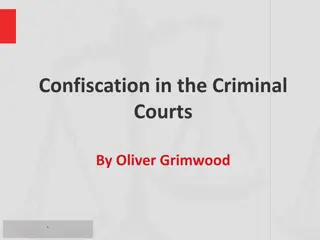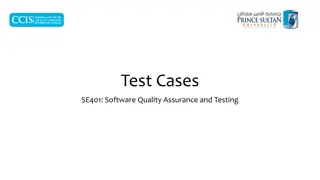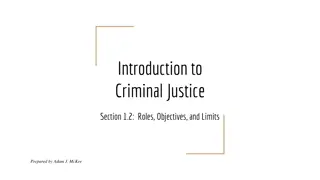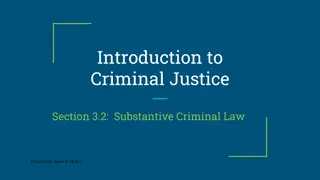Understanding Miranda Rights and Their Impact on Criminal Cases
Explore the significance of Miranda rights, as established in the landmark case of Miranda v. Arizona (1966). Learn about the specific warnings individuals must be given during police interrogations, the implications for remaining silent, the right to legal representation, and how custody and interrogation impact the application of Miranda rights in criminal proceedings. Dive into the intricacies of these constitutional protections and their role in safeguarding individual liberties within the criminal justice system.
Download Presentation

Please find below an Image/Link to download the presentation.
The content on the website is provided AS IS for your information and personal use only. It may not be sold, licensed, or shared on other websites without obtaining consent from the author. Download presentation by click this link. If you encounter any issues during the download, it is possible that the publisher has removed the file from their server.
E N D
Presentation Transcript
www.lawday.org #lawday2016
Looking at Miranda Your Right to Remain Silent www.lawday.org #lawday2016
The Miranda Warning You have the right to remain silent. Anything you say can and will be used against you in a court of law. You have the right to talk to a lawyer and have the lawyer present with you while you are being questioned. If you cannot afford a lawyer, one will be appointed to represent you before any questioning if you wish. You can decide at any time to exercise these rights and not answer any questions or make any statements. Do you understand each of these rights as I have explained to you? Having these rights in mind, do you wish to talk to us now? www.lawday.org #lawday2016
Miranda v. Arizona (1966) Name: Age: Education: Location: Ernesto Miranda 23 9th grade Phoenix, Arizona www.lawday.org #lawday2016
Miranda v. Arizona (1966) Our holding will be spelled out with some specificity in the pages which follow, but, briefly stated, it is this: Prior to any questioning, the person must be warned that he has a right to remain silent, that any statement he does make may be used as evidence against him, and that he has a right to the presence of an attorney, either retained or appointed. The defendant may waive effectuation of these rights, provided the waiver is made voluntarily, knowingly and intelligently. If, however, he indicates in any manner and at any stage of the process that he wishes to consult with an attorney before speaking, there can be no questioning. www.lawday.org #lawday2016
Words to Know Custody means formal arrest or the deprivation of freedom to an extent associated with formal arrest. Interrogation means explicit questioning or actions that are reasonably likely to elicit an incriminating response. The police do not need to give the Miranda warnings before making an arrest, but the warning must be given before interrogating a person while in custody. www.lawday.org #lawday2016
What are the facts of the case, including the name and year? What question(s) did the Court decide? How did the Court rule? How does the ruling affect Miranda rights? www.lawday.org #lawday2016
Greenwald v. Wisconsin (1968) Mr. Greenwald was arrested on suspicion of burglary and interrogated at a police station. Over the course of 24 hours, he was denied medication, sleep, and food. He made no incriminating statements to police, and repeatedly denied guilt, but later provided a written confession. According to his testimony, Greenwald confessed because "I knew they weren't going to leave me alone until I did." In a 6-3 decision, the U.S. Supreme Court stated that under the "totality of the circumstances" surrounding petitioner's confession that it was not voluntary. Greenwald was not given counsel, and was denied food, sleep, and medication; and was not given adequate warnings as to constitutional rights. Considering the totality of these circumstances, we do not think it credible that petitioner s statements were the product of his free and rational choice. www.lawday.org #lawday2016
Oregon v. Mathiason (1977) Mr. Mathiason was invited to a police station to answer questions about a burglary. He came freely and was told he was not under arrest. Mathiason confessed to the crime and later claimed it should not be used at trial because he had not been properly Mirandized. In a 6-1 decision, the U.S. Supreme Court ruled that since the questioning took place in a context where Mathiason s freedom to depart was not restricted in any way, he came voluntarily to the police station, and was informed that he was not under arrest, he was not in police custody at the time of his confession, so Miranda rules did not apply. www.lawday.org #lawday2016
New York v. Quarles (1984) Mr. Quarles, a rape suspect, entered a supermarket, carrying a gun. Police arrested him, but did not find a gun on his person. Police asked Quarles where the gun was, and he gestured, the gun is over there. The officer found the gun and read Quarles his Miranda warnings. Quarles later argued that his statement must be excluded because it was elicited before the police read him his Miranda warnings. In a 5-4 decision, the U.S. Supreme Court held that there is a "public safety" exception to the requirement that officers issue Miranda warnings to suspects. Since the police officer's request for the location of the gun was prompted by an immediate interest in assuring that it did not injure an innocent bystander or fall into the hands of a potential accomplice, a failure to read the Miranda warning did not violate the Constitution. www.lawday.org #lawday2016
Maryland v. Shatzer (2010) Police interviewed Mr. Shatzer in 2003 regarding allegations that he had sexually abused his child. At the time, he was incarcerated on an unrelated offense, and during the interview, invoked his rights to counsel and to remain silent, so the interview was terminated. The investigation was subsequently closed, only to be reopened in 2006. During the 2006 interview, Shatzer confessed to abusing the child, but insisted his Miranda rights from three years earlier still applied. In a unanimous decision, the Court held that because Shatzer experienced a break in Miranda custody lasting more than two weeks between the first and second attempts at interrogation, the Fifth Amendment does not mandate suppression of his 2006 statements. That provides plenty of time for the suspect to get reacclimated to his normal life, to consult with friends and counsel, and to shake off any residual coercive effects of his prior custody. www.lawday.org #lawday2016
Howes v. Fields (2011) While he was incarcerated, Mr. Fields was escorted from his cell to a conference room where armed law enforcement officers, who did not work for the prison, questioned him for seven hours regarding activities unrelated to his incarceration. Fields was told that he could request to go back to his cell whenever he wanted, and the door to the room was kept open during questioning. He eventually made incriminating statements, which he sought to exclude from trial because he was not read his Miranda rights at the time. In a 6-3 decision, the U.S. Supreme Court stated that investigators don't have to read Miranda rights to inmates during jailhouse interrogations about crimes unrelated to their current incarceration. "Imprisonment alone is not enough to create a custodial situation within the meaning of Miranda." www.lawday.org #lawday2016
Salinas v. Texas (2013) Police officers spoke with Mr. Salinas during a homicide investigation. He agreed to accompany the officers to the police station, and answered every question until an officer asked whether the shotgun shells found at the scene of the crime would match the gun found in Salinas s home. He remained silent and demonstrated signs of deception. He later objected when his silence was used during trial to suggest guilt. In a 5-4 decision, the U.S. Supreme Court held that a witness must expressly invoke the Fifth Amendment privilege against self-incrimination in order to benefit from it.This requirement ensures that the government is put on notice when a defendant intends to claim this privilege and allows the government to either argue that the testimony is not self-incriminating or offer immunity. The Fifth Amendment s privilege against self-incrimination does not extend to defendants who simply decide to remain mute during questioning. www.lawday.org #lawday2016
www.lawday.org #lawday2016
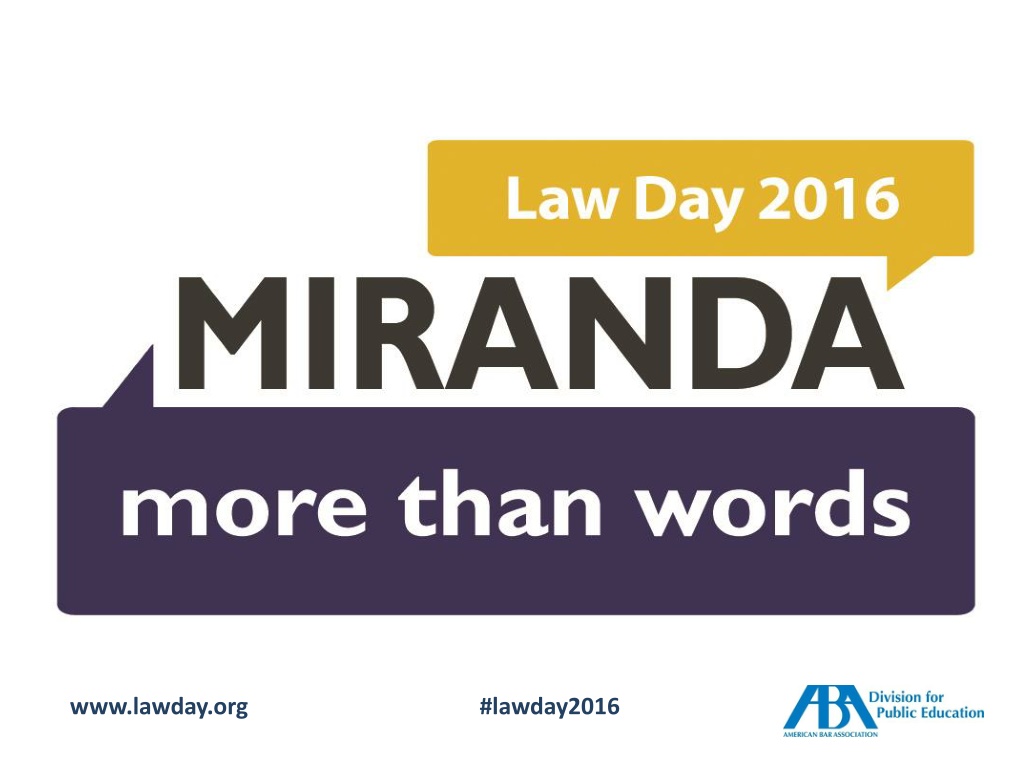


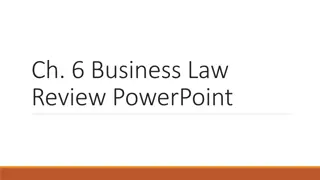





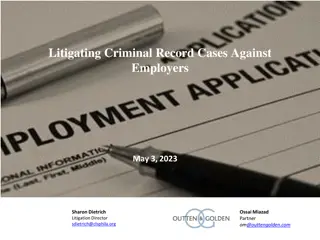
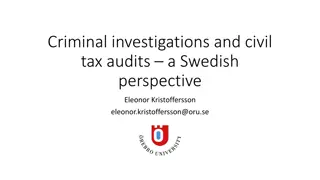



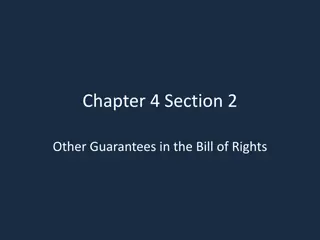
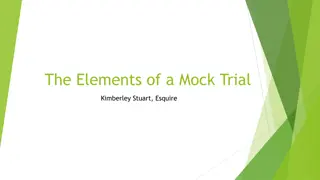
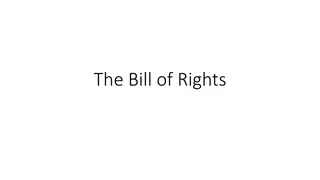
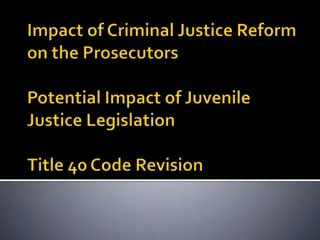
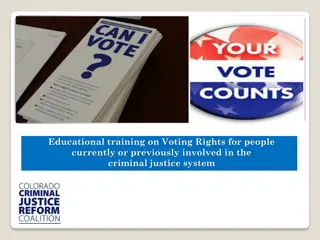
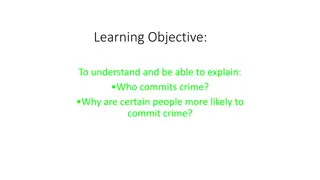
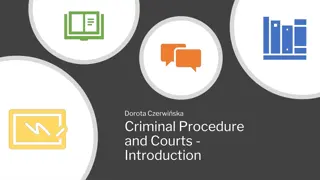


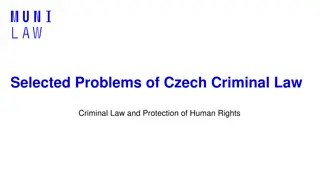

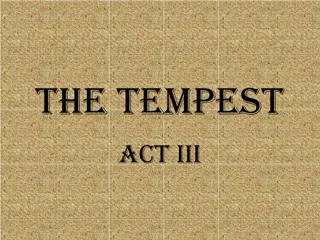
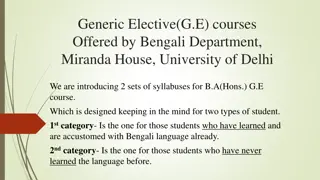

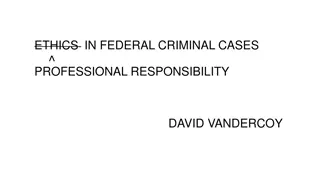
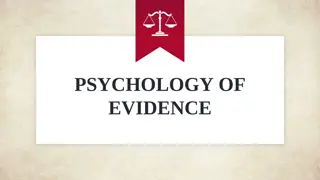


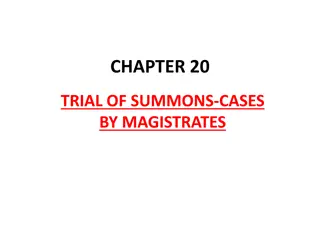
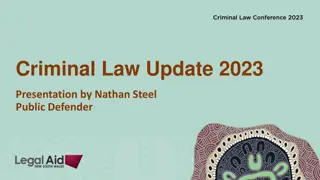
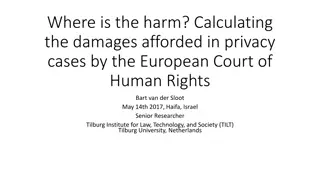
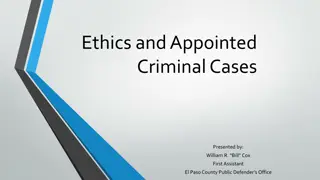
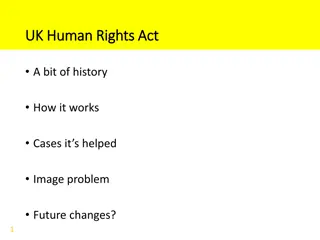

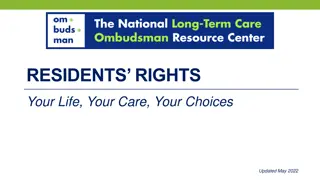


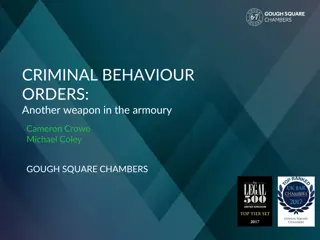
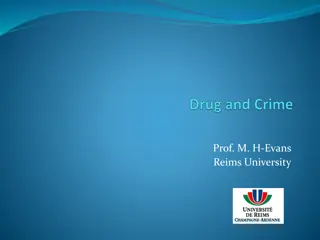
![Briefing on the Criminal Procedure Amendment Bill [B12-2021] to the Portfolio Committee on Justice and Correctional Services](/thumb/157093/briefing-on-the-criminal-procedure-amendment-bill-b12-2021-to-the-portfolio-committee-on-justice-and-correctional-services.jpg)
